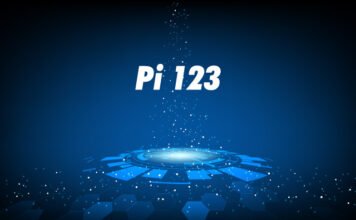Applications are the latest hub for mental health issues, consultations, and therapy. The best mental health apps offer convenience, portability, and a wealth of resources—free or well with a minimum wage-earner budget.
Mental health is a soaring concern of the 21st century. And despite the relentless efforts of activists and professionals to destigmatize it, many patients still hesitate and even fail to come forward with their concerns.
One of the many determinants of mental health falling apart is excessive use of social media. According to research, teenagers and young adults are the prime victims of this disability as they fall into self-esteem, confidence, and trust issues.
Another reason why many patients still fail to seek help and therapy is either because of the expenses, vulnerability, or anonymity. Since a mobile application checks all three of these concerns, they can be a potential gateway to reaching a much larger crowd.
Health experts argue that therapy via applications is soon to become the new norm. And to keep a check on the quality of services, the American Psychiatric Association rates these apps. Also, the app developers are urged to keep a professional board in making programs even better if a platform has experts available via a Hotline for emergencies!
The 11 Best Mental Health Apps
Mental health apps can be an alternative to therapy for those who can’t reach or access an in-person therapy session. Also, they can greatly benefit patients undergoing treatment with a certified professional.
Since there are so many apps out there that belong to different therapy areas, it gets confusing to make a pick. So, we’ve decided to do the hard work and reviewed some popular mental health apps. Here is our list of the best self-help apps, which rank in no particular order.
1. Talkspace

Talkspace gives you the closest experience to receiving therapy in person. The platform has certified mental health experts connected to you through messages, voice calls, and video calls.
The experts have a minimum experience of 3,000 hours of therapy and are trained extensively for online sessions.
Banking-grade encryption guarantees your anonymity, privacy, and confidentiality. And you can access all that at a low price of $60. Although it is not the cheapest counseling app you can subscribe to, it is still much more affordable and feasible than going to therapy.
2. Happify
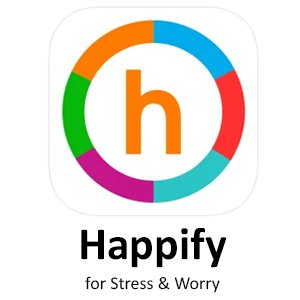
Happify lets you kill two birds with one stone. It helps you overcome anxiety, depression, stress, trauma, and procrastination through playing games!
Health experts designed and developed the games specifically to garner a mental health patient’s needs. The app aims to convince patients that sometimes, the most minor steps in life make the biggest changes.
And that can be seen through the short games available on the app. You can start with a low price of $15 for one of the best self-help apps.
3. Calm
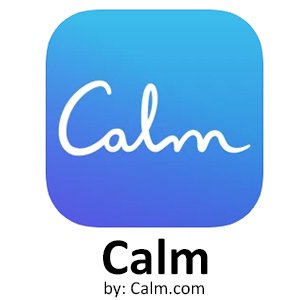
Calm is one of the best free therapy apps for mental health. Although the app includes purchases, most sessions are free for Android and Apple users.
Calm helps you fight stress, depression, and anxiety. Also, it helps you rebuild the neural pathways in your brain and achieve mindfulness via meditation.
The app features over 30 nature sounds you can use for meditation. But if you’re a beginner, you can find week-long guided meditation programs to help you settle in. Calm also tracks your daily activity to evaluate your progress later on.
4. Quit That!
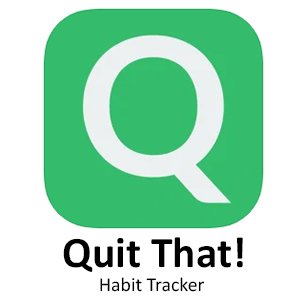
We usually fail to acknowledge how much our bad habits contribute to deteriorating mental health. And even though you recognize your bad habits, you can’t find an effective way to quit.
Quit That! is an ideal app for quitting addictions or bad habits. It can be anything from alcohol or drug abuse to caffeine and sugar consumption. However, it is only available in Apple stores for now.
The app features a live-timer, down to the seconds, that lets you know how long it has been since you’ve quit. The live-timer gives you instant gratification for holding yourself off of something and motivates you to keep trying.
5. Moodfit
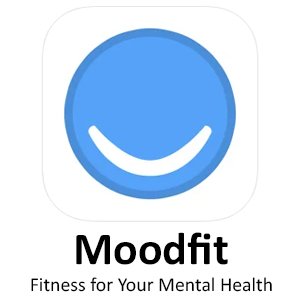
Moodfit is probably the best app for depression, anxiety, and self-help. It was selected by the American Nurse Foundation to improve nurses’ mental health.
Moodfit is more like a daily journal where you feed your emotions. Only much more literally!
The app allows you to create a set of goals for your mental health and then track your progress. You can log your emotions by noting what makes you anxious or depressed. Also, you find out how different activities like exercise and singing make you feel.
6. Sanvello
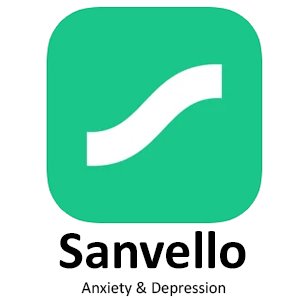
“Whether you’re feeling anxious, lonely, overwhelmed, or just burned out, Sanvello will meet you where you’re at.”
Sanvello tops the charts for the best apps for depression and the best apps for anxiety. It mainly focuses its therapies and treatment on Cognitive Behavioral Therapy (CBT).
The app for mental health offers free support. But suppose you want access to the in-app self-care content, meditations, and techniques. In that case, you can purchase a premium for an affordable price of $8.99.
The feature that attracts us most about this mental health app is its community. You can share your concerns or help another individual out in the community. And all that while remaining anonymous!
7. MoodMission

MoodMission is another entry for free counseling apps that use CBT to improve your mood. The app gives you milestones labeled as “Missions.” Upon completing each mission, you advance to another app rank.
The missions allotted to users are evidence-based activities for decreasing stress hormones, anxiety, and depression. Some of the missions are:
- Relaxation and Deep Breathing
- Exercise and Fitness
- Toga
- Gratification
- Behavioral Activation
- Affirmations and Coping Statements
- Mindfulness and Meditation
Although the app includes in-app purchases, you can still access a lot of data for free. It allows you to specify your issues, which can be anything from traumas and insecurities to phobias.
8. Headspace
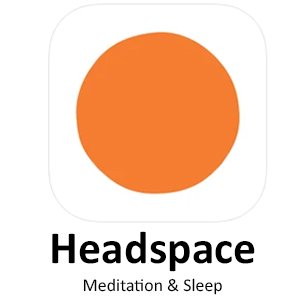
The Headspace app was started by a Buddhist monk whose meditation training made him travel the world. The app focuses on the basics of mindfulness and meditation to reduce and fight mental health issues.
The app helps users overcome depression, anxiety, stress, PTSD, and even eating disorders by teaching them to focus.
Although getting a nick of meditation takes time, you can progress slowly into it with the guided meditations provided on the app. Headspace is not a free app to use. Still, it does include a free trial period of two weeks to familiarize yourself with the platform.
9. Shine
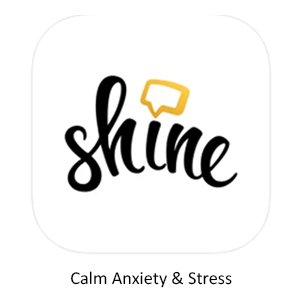
The female-only self-help app is counted amongst the best apps for mental health. It doesn’t feature logs and conversations with experts like the others on the list. But it introduces a way of healing of its own.
With a subscription of only $54 per year, you can access one of the largest databases of images and audio files.
Also, you can choose a part of your daily life that you want to improve from the categories provided. The built-in categories cover stress, depression, anxiety, confidence, motivation, burnout, forgiveness, mindfulness and meditation, and many more!
The audio talks and captivating graphics are short enough for you to listen and skim through while doing your daily chores.
10. Depression CBT Self-Help Guide

Depression CBT Self-Help Guide is a completely free counseling app. But it is not mentioned near the top as it is only available on Android devices for now.
The app makes you fill out a questionnaire on the download that determines the severity of your depression. It is the best app for depression as it works by educating a user about the different effects and symptoms of depression.
Besides knowing the symptoms, you can also use productive CBT techniques to improve your mood. Whether it is something as instant as a few pushups or a week-long meditation program, you’ll get due suggestions based on your stress levels.
11. Mind Ease: Anxiety Relief
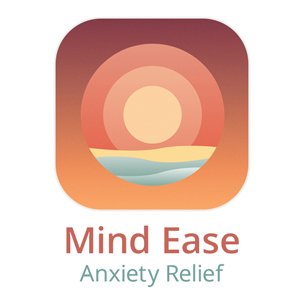
Mind Ease gives you fast and effective anxiety relief that is tailored to you and based on the best practices in modern psychology. Written by a team of mental health professionals, the app is designed to provide affordable mental health support whenever and wherever you need it.
The yearly subscription has a free trial and gives you full access to Mind Ease’s rich content library. This includes the highly-rated Calm Me feature, where users can access a variety of evidence-based anxiety-conquering exercises that take less than 10 minutes to complete.
Ending Thoughts
You do get the “…internet is no place to find treatment for mental health…” statement thrown out a lot. But what you don’t realize is that it is heavily outdated. We live in a much more tightly knit and well-organized global community over the internet now. Applications are a breakthrough in treating mental health illnesses.
That is not to say you should abandon your therapist and resort to seeking help via apps because it is most helpful for those who can’t reach regular therapy or want to complement their therapy sessions. From the above list of best mental health apps, we hope you find your perfect pick and begin your journey of self-transformation soon!




